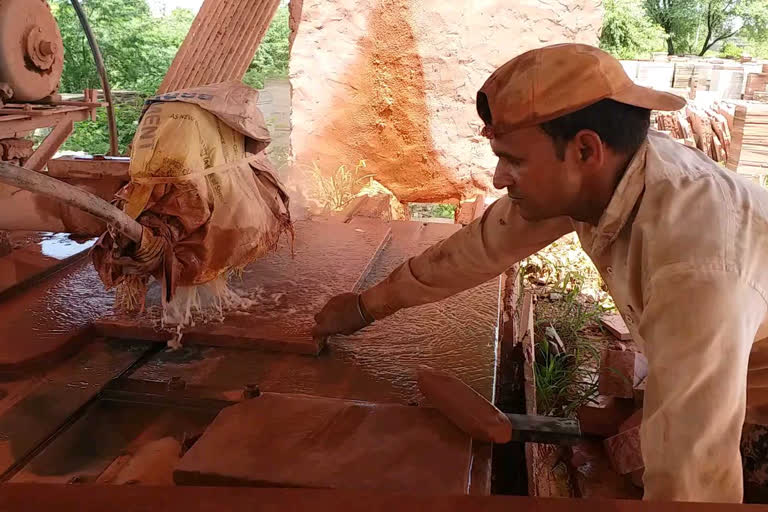Dholpur (Rajasthan): For decades more than 20,000 families have been eking out their livelihood from the red stone industry in the Dholpur district of Rajasthan. But currently, the industry has been passing through rough phases. Although, the demand for the red stone from this region of Rajasthan began during the Mughal era and attained prominence in the British period.
The craze for Dholpur red stone in India and abroad has been going on since time immemorial. In the construction of Delhi's Red Fort, Parliament building, Qutab Minar, Akshar Dham temple, Fatehpur Sikri dargah, Red Fort at Agra, and several others red stone was used. Tourists coming to India for sightseeing are attracted by the beauty of the red stone.
Recalling the history of the red stone industry in the Dholpur region of Rajasthan, Mukesh Kumar Agroha, president of the District Industry Association, said that the red stone business activities began here during the Mughal era. Emperor Humayun promoted the red stone quarrying in Dholpur. But in 1915, Britishers established a company called Dholpur stone.
Read: Karnataka govt mulls new law to regulate illegal stone quarrying
Munnalal Mangal, district president of the Stone Traders' Association, said that the red stone business was started in the Mughal period. Bari, Sarmathura, Basedi and Dholpur are some of the areas in the district where red stone-related business activities are concentrated. Among those areas, Sarmathura and Basedi are the major hub. More than 20,000 families' livelihood in the district is dependent on this industry.
During the British era, a special rail line was laid to give promotion to the red stone industry in Rajasthan. Before Independence, from 1917 to 1937, the red stone from Dholpur was transported to Delhi for the construction of the Parliament building, said Munnalal Mangal. The Dholpur red stone business has a turnover of Rs 22 crore.



